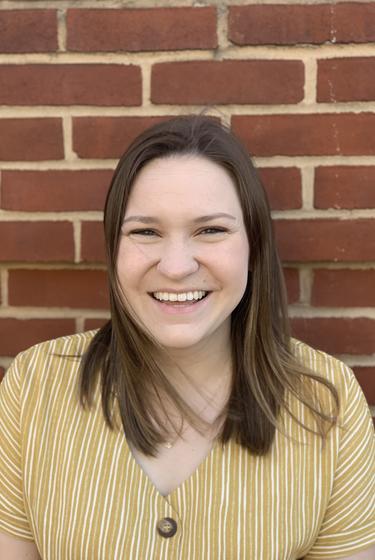Life is much more than time spent on the clock. In this series, we highlight the unique hobbies and volunteer activities of Mason's talented faculty and staff.

As the student enrichment coordinator in George Mason University’s College of Education and Human Development (CEHD), Caroline Masakayan helps organize a variety of student activities, including writers’ retreats, destress events, the CEHD Student Research Symposium, and the college’s Degree Celebration. She also supports student organizations and the college’s two learning communities. Before arriving at Mason in June 2022, Masakayan worked as a third-grade teacher.
Outside of work, Masakayan volunteers as a court-appointed special advocate (CASA), helping children experiencing tough living situations, abuse, and neglect. She has been volunteering since February 2022, helping kids in need and building strong relationships with them.
How did you first get started with this volunteer work? How long have you been doing it?
I learned about the Court Appointed Special Advocate (CASA) program years ago when I was in college. A mentor mentioned that she was a CASA and explained that CASAs work to advocate for the best interests of children who have experienced abuse or neglect. I remember thinking how difficult the work sounded, and honestly didn’t think about it again for years.
Then, in my first year as a third-grade teacher, I had a student who was living in a foster care placement. I was contacted by the student’s CASA to provide information about how the student was doing in school—socially, academically, and behaviorally. The CASA was able to add that information to her report and use it to shape her recommendation of next steps for the child and family. Again, I thought how hard that work must be, but something stuck with me this time.
When I started thinking about leaving the classroom in the early months of 2022, I knew I still wanted to be able to work with kids somehow, and being a CASA seemed like a perfect fit.
What is the time commitment? Does it vary at different times of year?
The time commitment varies depending on what is happening in the case. The work consists of home visits, writing up notes and reports, and continuing education. Generally, it only takes a few hours a month. That being said, report writing is a lengthy process, so the commitment is a bit more in months when your case goes to court.
What has been the most meaningful or memorable experience you’ve had in this role?
The most meaningful part of this work is the relationships with the kids. Once the relationships are established, it’s fun to see the kids light up when you walk in the door. Stability is often a challenge for these kids, as they can sometimes be moved multiple times throughout the duration of their case. Being a steady, friendly, familiar face can be a real source of comfort for the kids, and it’s special to be able to play that role.
What lessons have you learned through this experience?
This experience has given me a lot of perspective. People experience very real, very difficult things all the time. You truly never know what someone is going through and a smile or a little kindness can go a long way.
What else do you enjoy doing in your spare time?
Exercise is my favorite way to clear my mind and relieve stress, so I’ve been really enjoying my time at the gym. Lately I’ve also been reading a lot and watching lots of good documentaries.
